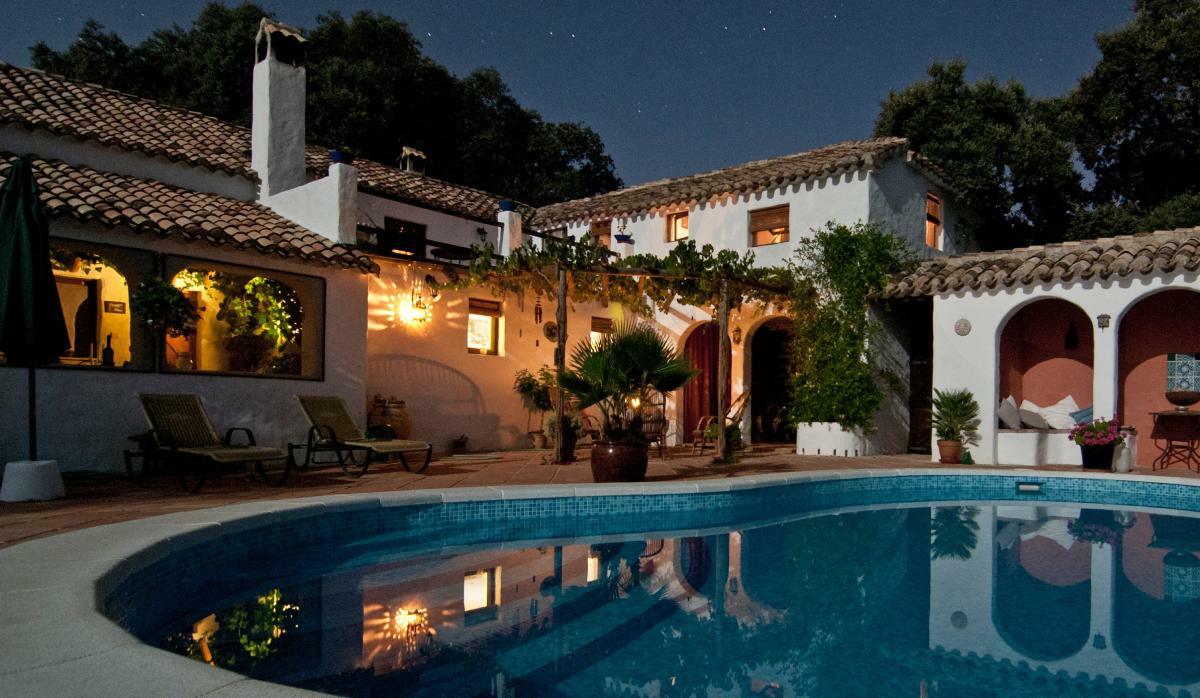Principal reasons to stay away from budget Spanish properties
1. Location, location, location
The location is the most obvious justification for avoiding low-end cheap real estate, especially in Spain. Prices will reflect the area in which it is located:
– Nearby airport (especially if you are buying as an investment property for vacation rentals or need to travel to and from countries abroad on a regular basis), quality schools for all ages, frequent and well-connected public transportation, and access to healthcare. – Local amenities: Restaurants, bars, shops, local cafes, day-to-day professional services such as car mechanics and health & beauty salons. All of the aforementioned factors, as well as others, can have a significant impact on both how easy it is to live somewhere and how much a home is worth. The village, town, or city’s public infrastructure plays a major role on the cost of your investment in real estate.
– Internet and phone coverage: In today’s world, it is commonplace to use mobile phones and the internet. Due to Spain’s size, developed cities, and coastline, where the majority of the population lives, the country’s internet and mobile signal conditions in 2023 are comparable to those of any first-world nation. Broadband speed and cell phone service, however, have lagged in many rural places, which is to say the least, frustrating. In certain rural inland settlements across mainland Spain, large network providers still haven’t put out good internet connections, and mobile phone usage is occasionally nonexistent.
Desirability of the neighborhood: Although it may not always be apparent when visiting and viewing a property on the market, factors like crime rates and statistics, unemployment, wage growth, the lack of access to public services, and public funding are all unnoticed elements that can affect a region’s property values. Carefully considering these variables is essential for your investment, whether you are buying as an investment, permanent residence, or vacation property.
2. Rental Prospects
Location and amenities are strongly correlated with the rental potential. There are a few extra considerations to make depending on whether you are considering long-term letting to the neighborhood market or as a vacation rental on a short-term weekly basis:
– Supply and demand: Is the property situated in a region that is in high demand for rentals? Are there already too many rental homes on the market, and are there not enough renters interested in them? Do your weekly or monthly earnings cover your payback obligations? Would rental yields make the financial risk worthwhile?
Parking may not seem like a major issue compared to the other issues mentioned in this article, but it can have a significant impact on tenants’ decisions. Street parking in developed regions can be hit or miss. With European towns being compelled to reduce emission levels to ongoing defined targets – as public and green mobility are increasingly prioritized – more and more roadside parking is making way for bus and bike lanes. For any Spanish real estate investment, having an allocated parking space or private garage is a plus.
Security is related to geography once more. Both tenants and property owners desire a sense of safety and security in the place they choose to call home. Living in a potentially dangerous neighborhood might also harm your prospects of renting out your investment or eventually selling your property, even if you spend a lot of money securing the house with window and door grills, security doors, alarm systems, and deadlocks. The value of a home and the likelihood of selling it quickly when it goes on the market are greatly influenced by its cleanliness and safety.
3. Age and health
A Spanish property’s age and condition will determine in large part whether your investment will be profitable or whether you will suffer significant losses on your initial investment.
– The fundamentals: Buying an older house in Spain can bring a number of challenges that must be resolved first before continuing. Any property that is 20 years old or older needs to have its electrical system completely upgraded. If the building’s electrical system hasn’t already been changed by the previous owner, you might be in luck. If not, a comprehensive overhaul of the electrical system is absolutely necessary for the building’s safety and function. The same is true for the gas, piping, and plumbing systems. They deteriorate over time, therefore it is better to have them completely redesigned or replaced if a thorough home remodeling is necessary to prevent any unwelcome surprises down the road. Buying an older home will require more time, money, and effort to put it in accordance with today’s standards because new constructions are built to higher standards utilizing the most up-to-date technology, designed to be environmentally friendly, and made to be energy efficient.
– Improvements and general deterioration: Complete reform? Delete and begin again? Or is it really an improvement and cleanup project? Materials costs are at an extremely uncertain stage as a result of the ongoing crisis in Ukraine. It can be challenging to accurately estimate the exact cost of what the ultimate outlay will be given the daily price changes for metals and other imported goods. Not to mention the rise in labor costs associated with hiring experts to complete the renovation, which would significantly lower your final yield when selling or renting your property.
– Inspection: Getting a specialist to make sure everything is in good functioning order is crucial, just like with any expensive purchase, like a car or high-end electronic equipment. By having a surveyor confirm that the building is physically solid and that there are no hidden or unpleasant surprises, you can protect your money before committing to the purchase. Anything that can prevent you from moving forward and possibly turn into a money pit. To meet the demand of buyers from Europe and the UK, developments were constructed at an alarming rate in several places, particularly along the coast, the Costa Blanca being one example. In record numbers, low-quality, inexpensive vacation homes and flats were built, but because of the poor planning and design, unskilled labor, and lack of attention to detail, they frequently have problems. This is where the idea that you might buy an inexpensive house in Spain, a mere shell with doors and windows, first emerged.
4. Unexpected Surprises
In fact, you might have discovered a seller that has to quickly sell their property due to personal reasons, even though it is now listed below market value. Nonetheless, occasionally people are victimized by subtle surprises.
– Illegal Building: Years ago, as the consequences from the scandal of years of lax regulation and unauthorized development surfaced, the Spanish real estate market made headlines for all the wrong reasons. Off-plan properties were constructed on greenbelt land without the required building permits, which was highlighted in Murcia, most infamously – Almera. Many unhappy property owners lost out on their life savings. As you can imagine, this problem extends beyond the new developments sector of the Spanish real estate market and includes homeowners who increase the square footage of their homes without requesting the proper and legal planning permission as well as homes constructed on land that is either agricultural or natural and cannot be reclassified as urbanized land intended for development.
– Inheritance and ownership problems: This is a prevalent problem in villages where properties are in disrepair and where legal ownership is of a deceased person or persons, leaving behind a difficult legal situation in identifying the now-legal owners through inheritance.
– Scammers: In the majority of Spain’s areas, anyone can register as an estate agent and market and sell properties. There isn’t currently a regulatory authority in the nation that mandates real estate agency registration, certification, or education. Doing it alone and buying from a private seller or a man you met in a neighborhood bar without the professional knowledge and legal know-how can possibly open up a can of worms if you do not completely understand the buying process in Spain. You will be protected through the legal maze that the Spanish real estate market can be without the necessary help if you work with a well-known, established, and professional real estate business and an independent lawyer. It’s not a good idea to try to save a little money by taking short cuts. Avoiding pitfalls is highly advised because, in most cases, if something sounds too good to be true, it probably is. You might be missing a potential issue that needs to be addressed.
– Local Climate: If you plan to rent out your property or want to escape the darker and colder climates of the northern hemisphere, you are undoubtedly betting on the weather as one of the key factors that will draw tourists to Spain. In many nations, climate change appears to be a clear geographical problem. Spain is no exception. In recent years, devastation and damage to property and belongings amounting to millions of euros have been caused by wildfires that have scorched thousands of hectares of forest land, are closing in on nearby villages and properties on the edge of dry woodland, flash flooding, and burst river banks that destroy everything in their path. The climate emergency has gained increasing significance in recent years.
Conclusion
In the long run, doing your homework and figuring out why a property is so inexpensive can spare you a lot of pain, frustration, and money. A small investment may generate little to no return. You can successfully invest in Spain if you do your research or have the professional assistance of a reputable real estate agency with the necessary investment know-how within the Spanish property market.
What we do – The nicest villas on the Costa del Sol are available from Domus Venari Group S.L., a Spanish corporation with legal status. We specialize in high-end luxury villas, land for sale, and investment properties along the coast. We also provide design and construction of new developments along the Costa del Sol.







